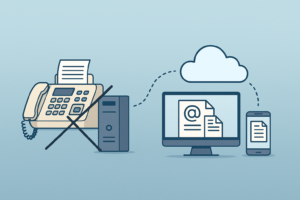With the increase of high-profile data breaches and growing fines from regulatory agencies, enterprise information security and archiving is more important now than ever. As well as the problems that come along with not following compliance requirements, loss of information can also cause the public's trust in an organization to decrease, as was the case recently with the federal government.
Millions of emails lost
After it was revealed that the IRS lost important agency emails last week, there was a call to investigate government IT email archiving brought by watchdog group Citizens for Responsibility and Ethics in Washington. The group sent letters to the House Oversight and Government Reform Committee, as well as the House Homeland Security and Government Affairs Committee, questioning why federal agencies have repeatedly lost important documents and emails.
The group called for action after reports surfaced that the Internal Revenue Service has been unable to find years of emails between government agencies and Lois Lerner, a central figure in the controversy surrounding IRS treatment of Tea Party groups. Previous cases of missing emails were cited in the group's letters, including those regarding the investigation of Bernie Madoff, Iraq War interrogation techniques and the dismissal of U.S. attorneys during the Bush administration, a case in which 5 million emails were lost or misplaced.
"The truth is that the disappearance of agency records is not unusual," said Melanie Sloan, executive director of CREW. "Government-wide, records are routinely lost or simply not preserved."
History of poor policies
According to FCW, the IRS says the emails were lost in 2011 after Lerner's hard drive crashed. The agency has spent an estimated 120,000 hours and $10 million dollars attempting to recover the emails. As USA Today reported, however, the loss of records was most likely due to a combination of poor IT policies, and not just a single hardware malfunction.
When Lerner's hard drive crashed, the policy in place at the IRS instituted an email capacity of 150 megabytes, about 1,800 emails, per mailbox. Once that limit was hit, each employee was allowed to individually decide which emails were necessary to keep or archive and which could be deleted.
"'Print and Save' is some people's actual policy. And a lot of times attachments aren't saved at all, even though they're supposed to be," said Sloan.
In a hearing with the House Ways and Means Committee, the ITS said that six other employees who had communicated with Lerner also experienced hard drive crashes, making retrieving the lost emails even more difficult.
The IRS has a long history of issues regarding both their enterprise and public-facing IT systems. The agency spends $2.4 billion on IT annually, yet the Government Accountability Office only took the agency's Business Systems Modernization program off of the list of high risk systems last year. The program was put on the list in 1995. The IRS also missed the April deadline to upgrade its operating systems from the vulnerable Windows XP. The agency is currently in the process of migrating to Windows 7, but so far only about half of its machines have made the switch. The IRS has asked Congress for an additional $30 million to help finalize the transition.
"We are very concerned if we don't complete that work, we're going to have an unstable environment in terms of security," IRS Commissioner John Koskinen told an Appropriations subcommittee.
Archive enterprise information with FoIP
The current issues the agency is having highlights the need for all governmental organizations to employ a centralized archive and to follow strict, agency-wide record keeping processes to eliminate confusion and data loss.
Data recovery and archiving is made much simpler by implementing a fax-over-IP solution. When faxes are sent with a FoIP service like FaxCore, the information within is stored on a secure, encrypted server. All documents transmitted over FoIP are then kept in an archived database that can be searched from anywhere with an Internet access. Organizations never have to worry about their hard drives crashing or USBs being lost, because all of their sensitive data is stored safely in the cloud.
Enhance enterprise communication, collaboration and compliance efforts with a proven FoIP solution from FaxCore. Contact FaxCore today to learn more about their 'Partly-Cloudy' fax solutions.




